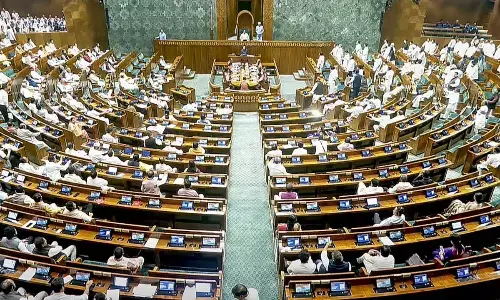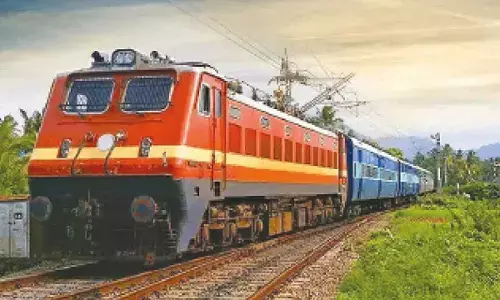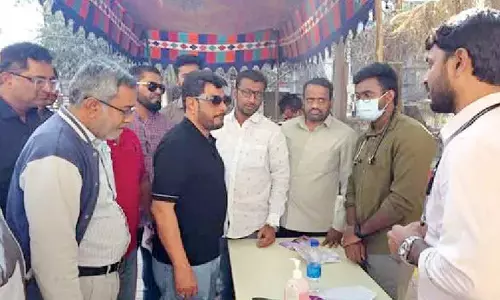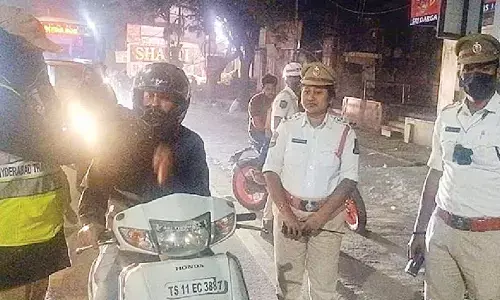No pit-stops in the fast lane: Gaurav Gill's training academy producing future champs
Share :

With 16 screws in his body, the airport detectors go in a tizzy whenever he is to board an aircraft. But nothing stops Gaurav Gill, the only Indian rallyist to win the Arjuna Award (2019).
New Delhi : With 16 screws in his body, the airport detectors go in a tizzy whenever he is to board an aircraft. But nothing stops Gaurav Gill, the only Indian rallyist to win the Arjuna Award (2019).
Marking his debut in the World Rally Championship (WRC) in 2018, making him the only Indian driver to do so, he is also the only Indian to win an international motorsport championship across race and rally series and has driven over 80 international rallies.
Being the first Indian to win and hold three titles of the Asia Pacific Rally Championship (APRC), New-Delhi-based Gill is now not only focussing on his career but also ensuring that future champs are groomed in this country where motorsport is still considered a rich man’s sport.
"Driving is not just a science but also an art. It would help if you learned to listen to the machine and 'talk' to it. One must acquaint himself/herself with how the vehicle will react in different conditions. Trust me, I have seen many top rallyists ‘talk’ to their cars," said the seven-time Indian National Rally Champion Gill, who runs the ‘Gaurav Gill Advanced Driving Academy’ in the Capital which has students aged 13 to 60 years.
While many people assume it is easy to drive a race car, the inside cabin exceeds 65 degrees temperature and on top of that the driver and co-driver wear suits and inner layers that are fireproof. "You lose up to five to seven kilos of water weight over the weekend in hot rallies -- people getting sick, dehydrated and even passing out. So, this is a very extreme sport."
On one hand, the school offers intense workshops for multiple days for different categories of drivers, and on the other Gill is hired for personal driving lessons, mostly by those who want to make it to the professional category. "Their training is not normal cars, but highly sophisticated machines that behave quite differently. Just because you can drive your street car does not mean you can handle a race one -- and that is where training comes in," he asserts.
For training professional category students, he takes them to Europe or Africa and uses WRC cars including Subarus and Evos, as the drivers must get an idea about the surface and track where they would be racing in the future.
"Of course, we have 'experience weekends' too -- people passionate about a race car drive get to tick it off their bucket list. We have around eight driving coaches who have won different championships."
With many of his students winning the INRC, and his school having trained more than 300 people, the champion was the first to start a rally school in India in 2008. "JK Tyres has been a key player in pushing the academy and my career over the last five years. Not to mention the Vamcy Merla group.”
While the head office of the school is in New Delhi, it now mostly operates in the South. "That is where our clientele is. Frankly, people down there are more inquisitive and eager to learn the finer nuances of racing. No wonder, on the national grid, you see more South Indians participating as compared to their counterparts in the North. Also, major rallies are held in that part of the country. There are less than ten per cent of North Indians in the entire grid of motorsport in this country."
Stressing that over the years, there has been an increase in the number of women coming to learn at his academy, Gill elaborates, "It is heartwarming to see them breaking the gender barrier. Many of them are now participating in INRC and other major rallies."
Talk to him about how winning the Arjuna Award made people take notice of this sport, and the rallyist says, "There is so much visibility now. The media has started giving more space. Earlier, it was more of a passion, and now many people realise it can be a profession too. But look, let us be clear, it is a unique sport. It is not a common man's sport and will never be."
He however insists that It is a growing sport with an upward trajectory, though it needs more support from the government and corporates. Citing Kenya’s example, which allows the import of specialised cars and their parts without duty for those holding the local federation’s license, Gill feels the same policy here will reap rich dividends here. "I had put a lot of stress on the Sports Ministry. They seemed interested, but nothing came out of it. Maybe because we are a small and niche community.”
Just back from the Indian Championship round one, he has recently got a brand new Fiesta imported from England by JK Tyre.
"I am looking forward to winning tougher rallies and preparing more students to take on the world so that we get the support and exposure we truly deserve," he concludes.













